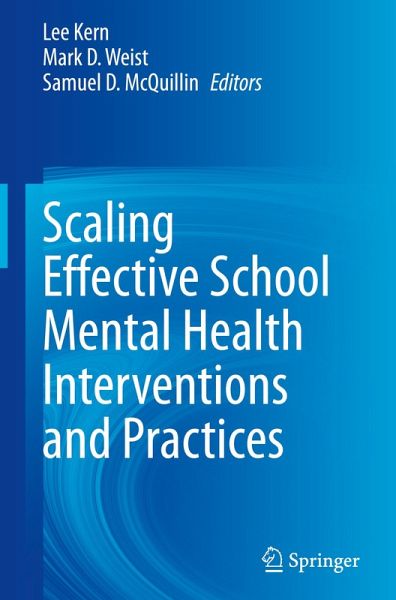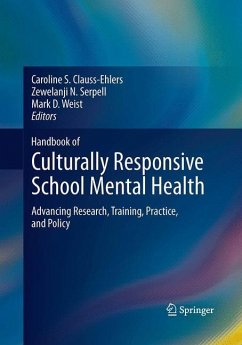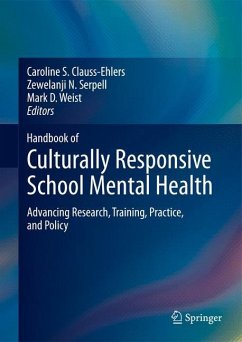
Scaling Effective School Mental Health Interventions and Practices

PAYBACK Punkte
53 °P sammeln!
This book describes key practices to bring school mental health programs to scale in a sustainable and effective manner. It emphasizes practices that facilitate the organization and delivery of evidence-based mental health interventions in schools. The volume addresses systems issues and practices that lay the groundwork for creating sustainable school mental health programs. It explores important considerations at the school, district, and state levels; tiered intervention as a framework to support school mental health; preparing the workforce; resource utilization and assuring cultural respo...
This book describes key practices to bring school mental health programs to scale in a sustainable and effective manner. It emphasizes practices that facilitate the organization and delivery of evidence-based mental health interventions in schools. The volume addresses systems issues and practices that lay the groundwork for creating sustainable school mental health programs. It explores important considerations at the school, district, and state levels; tiered intervention as a framework to support school mental health; preparing the workforce; resource utilization and assuring cultural responsiveness and equity for under-served groups of students. In addition, the book focuses on recent and emerging evidence-based practices for practicably scaling school mental health in schools. Chapters examine systematic screening, followed by specific interventions, including just-in-time training and single session interventions. The book concludes with a focus on ways to address systemic barriers to school mental health, such as addressing the mental health of immigrants.
Key areas of coverage include:
Communities of practice at different levels of scale (e.g., school building, national).Resource mapping across schools and communities.Screening to match student needs with interventions.Systemic issues in service delivery.
Scaling Effective School Mental Health Interventions and Practices is a must-have resource for practitioners, clinicians, and mental health therapists as well as researchers, professors, and graduate students across such interrelated disciplines as school, clinical, and counseling psychology, educational policy and government relations, social work, public health; family leaders and advocates, and medicine and allied health professions (e.g., psychiatry, primary care, nursing, speech and occupational therapy)
Key areas of coverage include:
Communities of practice at different levels of scale (e.g., school building, national).Resource mapping across schools and communities.Screening to match student needs with interventions.Systemic issues in service delivery.
Scaling Effective School Mental Health Interventions and Practices is a must-have resource for practitioners, clinicians, and mental health therapists as well as researchers, professors, and graduate students across such interrelated disciplines as school, clinical, and counseling psychology, educational policy and government relations, social work, public health; family leaders and advocates, and medicine and allied health professions (e.g., psychiatry, primary care, nursing, speech and occupational therapy)














